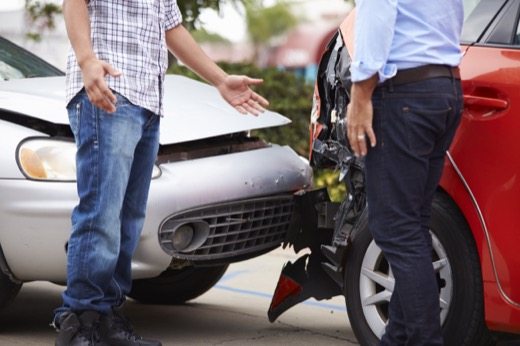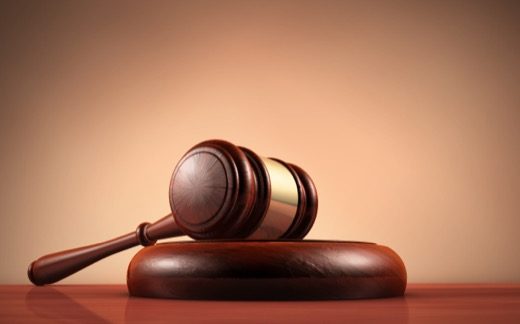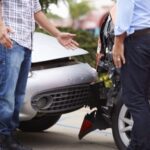What to Do If You Are in a Car Accident in the State of Florida – Part One of a Two Part Series
According to the Florida Department of Motor Vehicles, there are over 16 million drivers on the road in the state of Florida alone. As a result of these drivers, Florida has almost 250,000 vehicle crashes each year. The most common reason for car crashes in the state of Florida is careless driving. This could mean texting while driving, being distracted by other passengers, being distracted by something outside of the vehicle, such as another accident, and any number of other possible situations wherein the driver’s attention is not fully on the task at hand.
If you are in a car crash, there are certain things you need to know about the laws of Florida and your obligations to anyone with injuries; your obligations to other drivers on the road; and your obligations to owners of other vehicles, including unattended vehicles. You should also know what steps you should take to protect yourself in case of injury, and against potentially frivolous lawsuits. Particularly if you or someone else has been injured, taking the following steps can be critical both for compliance with Florida law and in anticipation of a potential lawsuit for property damages and personal injuries.
Do Not Leave the Scene of a Car Crash
If you are a driver of a vehicle that has been in a car crash that involves injuries, do not leave the scene without providing the other party with information, including your name, contact information, and insurance information. Failure to do so could result in you losing your privileges to drive in the state. Of course, if you are being removed by ambulance, this could provide for a legally defensible exception to this rule.
Do Not Block Traffic
While it is essential that you not leave the scene of a car crash entirely, you should move your vehicle to the side of the road, rather than leave it in the intersection or wherever else the car may have ended up after the crash. Of course, there may be times when your car is no longer operable. In this case, you should call a tow truck to remove the vehicle. The caveat to the “do not block traffic” rule is this: Before you move your vehicle, take a few minutes to document where your car ended up after the accident. If you have a cell phone, take pictures of the car in its final resting place from all angles. If you find yourself without a working cell phone, grab a pen and paper and sketch out the accident scene
to the best of your ability.
If You Crash into an Unattended Vehicle
If you crash into an unattended vehicle, (or if a vehicle that is unattended crashes into your vehicle, due to a failure of the operator to put it in park or other vehicle failure) you must inform the owner of the incident and your identity. Florida’s Department of Motor Vehicles advises you to provide your name, your address, your license plate number. Florida’s DMV also requires that you report the accident to the local police, the local sheriff, or the Florida Highway Patrol regardless of the amount of damages or injury.
Report the Crash to the Proper Authorities
In any car crash that involves property damage over $500 or involves injuries to any party, the crash must be reported. You can call the local police department, the sheriff’s department, or the Florida Highway Patrol. It is possible that you may be involved in a car crash that involves property damage where you are unsure if the damage will amount to $500 or more. In that situation, it is best to report the accident, in an abundance of caution. Additionally, not all injuries present themselves immediately. Reporting the crash will result in an investigation by law enforcement, who will likely write a report. This could be critical later. A failure to report the accident can’t be undone. In other words, you may file a report and discover you don’t need it. However, this is far preferable to failing to file a report and discovering later that you would, in fact, have benefited from having filed such a report.
Critical Next Steps
Once you have assured yourself that you have complied with all laws governing car crashes, take a moment to assess the situation with an eye towards future potential litigation. Remember, regardless of whether you believe you or the other person was at fault, the other driver may not agree with you. It is important to protect yourself both so that you may collect damages if you are entitled to them, but also to protect yourself from someone wrongfully obtaining damages from you that they are not entitled to. This can be done by taking the following steps:
Write down exactly what happened;
Take pictures of the scene;
Determine if there were any witnesses;
Gather witness contact information;
Determine if there might have been security cameras in the area that may have documented all or part of the accident;
Document the damage to your vehicle;
Document the damage to the other vehicle;
Document any other damage that may have been the result of the crash;
See a doctor about your injuries; and
Start a “crash diary.”
These critical next steps will be discussed in greater detail in Part Two of our series, “ What to Do If You Are in a Car Accident in the State of Florida.”
If You Have Been Injured in a Car Crash
If you have been injured in a car crash, or if you have lost a loved one in a car crash, you may be entitled to compensation for your injuries, as well as lost property and lost income. Contact the personal injury attorneys at Madalon Law. Our attorneys are happy to review the facts and circumstances of your case at no cost to you to determine whether you may have a claim. Because Florida has a strict statute of limitations, do not delay. Contact us today.















